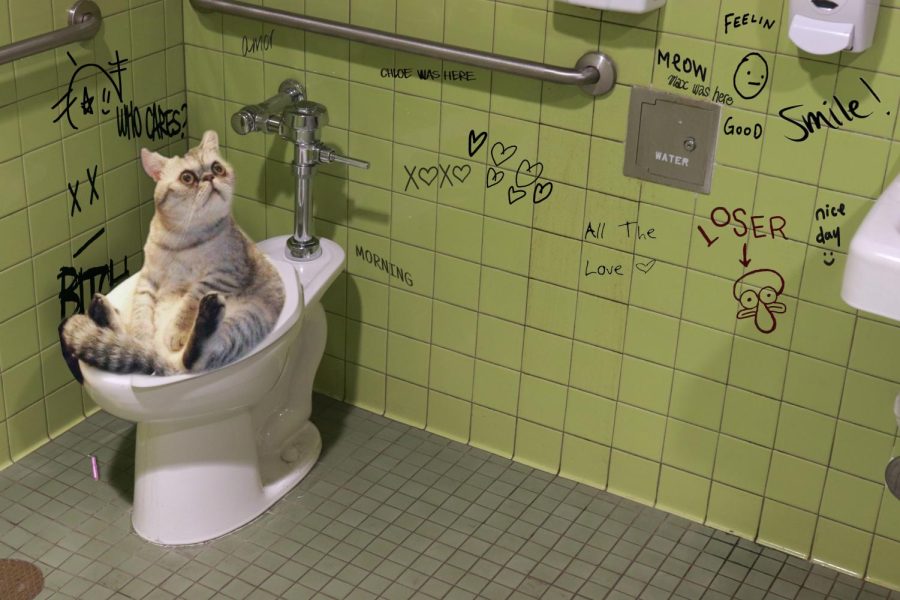Don't Flush Cat Poop Down Your Toilet - Preserve Your Home's Plumbing System
Don't Flush Cat Poop Down Your Toilet - Preserve Your Home's Plumbing System
Blog Article
Here below you'll find more quality facts regarding Don’t flush cat feces down the toilet.

Introduction
As cat owners, it's vital to be mindful of just how we deal with our feline good friends' waste. While it may seem practical to flush cat poop down the bathroom, this practice can have harmful effects for both the environment and human health and wellness.
Alternatives to Flushing
Fortunately, there are more secure and a lot more accountable means to deal with pet cat poop. Consider the complying with choices:
1. Scoop and Dispose in Trash
One of the most common technique of disposing of pet cat poop is to scoop it into a naturally degradable bag and toss it in the trash. Make sure to use a devoted litter scoop and throw away the waste without delay.
2. Usage Biodegradable Litter
Go with eco-friendly cat trash made from products such as corn or wheat. These clutters are eco-friendly and can be safely gotten rid of in the trash.
3. Bury in the Yard
If you have a backyard, take into consideration hiding pet cat waste in a designated area far from vegetable gardens and water resources. Make certain to dig deep enough to avoid contamination of groundwater.
4. Mount a Pet Waste Disposal System
Purchase an animal waste disposal system especially created for feline waste. These systems utilize enzymes to break down the waste, minimizing smell and environmental impact.
Health Risks
Along with environmental issues, purging feline waste can likewise pose health and wellness threats to human beings. Cat feces might consist of Toxoplasma gondii, a parasite that can create toxoplasmosis-- a potentially severe disease, specifically for expectant females and people with damaged immune systems.
Ecological Impact
Purging pet cat poop introduces unsafe microorganisms and bloodsuckers right into the water system, posturing a considerable risk to marine ecosystems. These pollutants can negatively affect marine life and compromise water quality.
Final thought
Liable family pet ownership expands beyond offering food and sanctuary-- it likewise includes correct waste management. By refraining from purging feline poop down the bathroom and opting for alternative disposal methods, we can reduce our ecological impact and protect human health and wellness.
Why Can’t I Flush Cat Poop?
It Spreads a Parasite
Cats are frequently infected with a parasite called toxoplasma gondii. The parasite causes an infection called toxoplasmosis. It is usually harmless to cats. The parasite only uses cat poop as a host for its eggs. Otherwise, the cat’s immune system usually keeps the infection at low enough levels to maintain its own health. But it does not stop the develop of eggs. These eggs are tiny and surprisingly tough. They may survive for a year before they begin to grow. But that’s the problem.
Our wastewater system is not designed to deal with toxoplasmosis eggs. Instead, most eggs will flush from your toilet into sewers and wastewater management plants. After the sewage is treated for many other harmful things in it, it is typically released into local rivers, lakes, or oceans. Here, the toxoplasmosis eggs can find new hosts, including starfish, crabs, otters, and many other wildlife. For many, this is a significant risk to their health. Toxoplasmosis can also end up infecting water sources that are important for agriculture, which means our deer, pigs, and sheep can get infected too.
Is There Risk to Humans?
There can be a risk to human life from flushing cat poop down the toilet. If you do so, the parasites from your cat’s poop can end up in shellfish, game animals, or livestock. If this meat is then served raw or undercooked, the people who eat it can get sick.
In fact, according to the CDC, 40 million people in the United States are infected with toxoplasma gondii. They get it from exposure to infected seafood, or from some kind of cat poop contamination, like drinking from a stream that is contaminated or touching anything that has come into contact with cat poop. That includes just cleaning a cat litter box.
Most people who get infected with these parasites will not develop any symptoms. However, for pregnant women or for those with compromised immune systems, the parasite can cause severe health problems.
How to Handle Cat Poop
The best way to handle cat poop is actually to clean the box more often. The eggs that the parasite sheds will not become active until one to five days after the cat poops. That means that if you clean daily, you’re much less likely to come into direct contact with infectious eggs.
That said, always dispose of cat poop in the garbage and not down the toilet. Wash your hands before and after you clean the litter box, and bring the bag of poop right outside to your garbage bins.
https://trenchlesssolutionsusa.com/why-cant-i-flush-cat-poop/

Hopefully you enjoyed our post about How to Dispose of Cat Poop and Litter Without Plastic Bags. Thanks a ton for taking time to read our article. Are you aware of someone else who is excited about Can You Flush Cat Poop Down The Toilet?? Why not share it. I truly appreciate reading our article about Don’t flush cat feces down the toilet.
Click Here Report this page